Eyeshield 21: The Treatment of Opposing Teams
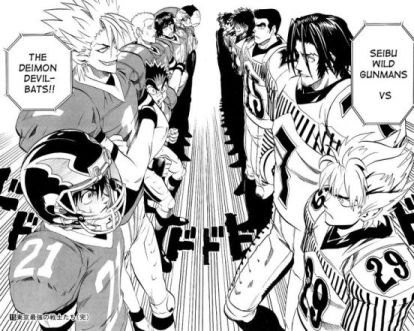
Perhaps no other form of fiction subverts the very values that its subject matter purports to teach the way that the average sports story does. In real life, we are assured again and again that what matters is not who wins or loses, but whether everyone played their best and had a good time. The team handshake at the end of almost all sporting events is meant to reinforce the simple fact that everyone on the field is playing the same game. Within the confines of fiction, however, exactly the opposite lesson is often imparted. The opposing teams are not fellow athletes, but enemies who deserve to be crushed. In order to drive that point home, your average Opposing Sports Team is composed of bullies, snobs, or thugs. At best they will be elitist snobs who ridicule and deride the protagonists, at worst they will be outright cheats or even engage in violence. Regardless, a story that is ostensibly about an athletic competition will typically take on overtones of Good vs. Evil that would be more appropriate to a work of epic fantasy or space opera. It says a lot about just how deeply ingrained these notions are that when Canadian curling comedy Men With Brooms decided to parody everything about the average sports story, the fact that main antagonist Alexander “The Juggernaut” Yount believed in fair play and was a graceful loser was used as a punch line.
The reasons for this are not exactly difficult to work out. In order to make a work of fiction about a group of people throwing a ball around exciting, the stakes, writers often assume, must be higher than they would be in a genuine athletic competition. What then, could provide greater stakes than ensuring that a group of Bad People do not take the championship? Sometimes, as an added bonus, there will be additional prizes, such as the money the protagonist needs for an operation, or the right for one or both of the clubs to remain open, on the line. This way, when our morally upright heroes best the enemy scum the crowd can really cheer. From the very beginning, though, this is a road that football manga Eyeshield 21 refuses to go down. With protagonists who are less than morally upright, and antagonists who are as sympathetic, if not more so, than the heroes, Eyeshield 21 challenges the stereotypes and cliches of sports-based fiction, while reminding its readers of what athletics are really all about.
The Deimon Devil-Bats
In any other sports series, Yoichi Hiruma would be the bad guy. An absolute lunatic of a quarterback, Hiruma rules his team through fear and intimidation, threatens and blackmails authority figures to get what he wants, insists that victory is everything and that second place is for losers and failures, displays no sympathy for the players under his command, utilises every underhanded play in the book, and opens every game by trash-talking the opposing team in an effort to undermine their morale. Within the strange world of Eyeshield 21 though, Yoichi Hiruma is one of the good guys, and a mentor and role model to protagonist and running back Sena Kobayakawa (aka Eyeshield 21)—a player who Hiruma drafted into playing against his will. In part this is because Hiruma is at least fifty percent act and should never be taken seriously by anybody who is not currently playing against him. Mostly, however, it is because Eyeshield 21 has an approach to morality and characterisation that most sports-based series would find completely alien.
That Hiruma looks and acts the part of an over-the-top villain while captaining the protagonist’s team is the entire point of his character. His attitude and way of running the team—and recruiting players—ensures that any claim the Deimon Devil-Bats might have on the moral high ground is contentious at best. With the self-proclaimed “Playmaker from Hell” at their head, it does not take long for the reader to realise that to their opponents, the Devil-Bats look eerily like the dreaded Opposing Sports Team. The series’ refusal to always treat the team from Deimon as the underdog reinforces this, with the Devil-Bats’ crushing defeats of the Amino Cyborgs (38 to 8), Yuhi Guts (56 to 6) and Dokubari Scorpions (42 to 0) making it obvious that they are a force to be reckoned with, even if they still fall short of powerhouse teams like the Seibu Wild Gunmen, Ojo White Knights, or Shinryuuji Nagas. That Sena, Hiruma, and their teammates are crushing a lot of other athletes’ hopes and dreams on their way to the finals is not glossed over, but is a central part of the series. Even as the audience cheers the Devil-Bats on, they are invited to feel sorry for the teams that they are beating.
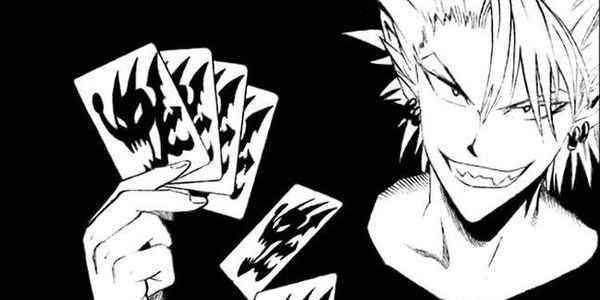
Friendly Rivalries
Feeling sorry for the losing teams is not that hard in most cases, because Eyeshield 21 also refrains from making the majority of Sena’s adversaries into villains. Riku Kaitani of the Seibu Wild Gunmen is an old friend of Sena’s, and the one who taught him how to become a topflight runner in the first place. Riku’s teammates Shien “The Kid” Mushanokoji and Jo Tetsuma are revealed to be childhood friends who first got into football so The Kid could escape the shadow of his oppressive, Olympic athlete father. All three are thoroughly likeable characters who treat the Devil-Bats with respect—The Kid even manages to be on friendly terms with Hiruma, no easy feat—with Tetsuma at one point going so far as to take a penalty in order to prevent Deimon receiver Taro “Monta” Raimon from being ejected from the tournament. Haruto Sakuraba of Deimon’s chief rivals the Ojo White Knights receives an entire character arc about his quest to stop being dead weight and become a star player, and when he clashes with Monta for the title of Kanto’s best receiver it is difficult not to cheer for him—particularly since, at the start of the series, Monta would have beaten Sakuraba with one hand tied behind his back. When Daisuke Atsumi of the Yuhi Guts proclaims “this is my last play”—he is graduating at the end of the year—moments before being blown away by Sena’s lightning fast run, Sena, and the audience, feel his sorrow at how his football career has turned out.
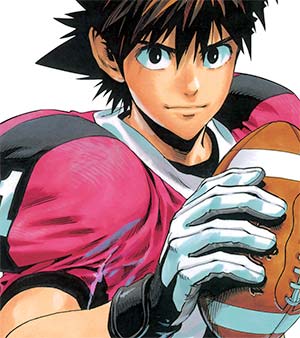 This is not to say that the rivalries within the series cannot be intense, far from it. In the main, however, Eyeshield 21 focuses on the character growth that comes from these rivalries, rather than trying to position one player or another as the villain. Sena’s continuous rivalry with Ojo linebacker Seijuro Shin, while heated, is entirely civil, with each one pushing the other to become the best player that he can be. Sena, in fact, makes a habit of forming friendships with opposing players, including, but not limited to, Shin, Kengo Mizumachi and Shun Kakei of the Kyoshin Poseidon, Patrick “Panther” Spencer of the NASA Aliens (and later the American national team), and Takeru Yamato of the Teikoku Alexanders. It is these friendships that enable the series to invoke multiple opposing emotions at once. When the Devil-Bats pull off a win against Kyoshin after a nail-bitingly close game, the reader can both celebrate with Sena and his team, while feeling sorry for Mizumachi and Kakei, even as the in-universe audience sends up a cheer for both teams. When Ojo quarterback Ichiro Takami retreats to the locker room to cry in private after Deimon knocks the White Knights out of the Kanto Regional Tournament, his pain matters nearly as much to the reader as Sena, Hiruma, and Monta’s elation. That all the players involved are trying their hardest and aiming for the same goals as our protagonists is something the series never allows you to forget.
This is not to say that the rivalries within the series cannot be intense, far from it. In the main, however, Eyeshield 21 focuses on the character growth that comes from these rivalries, rather than trying to position one player or another as the villain. Sena’s continuous rivalry with Ojo linebacker Seijuro Shin, while heated, is entirely civil, with each one pushing the other to become the best player that he can be. Sena, in fact, makes a habit of forming friendships with opposing players, including, but not limited to, Shin, Kengo Mizumachi and Shun Kakei of the Kyoshin Poseidon, Patrick “Panther” Spencer of the NASA Aliens (and later the American national team), and Takeru Yamato of the Teikoku Alexanders. It is these friendships that enable the series to invoke multiple opposing emotions at once. When the Devil-Bats pull off a win against Kyoshin after a nail-bitingly close game, the reader can both celebrate with Sena and his team, while feeling sorry for Mizumachi and Kakei, even as the in-universe audience sends up a cheer for both teams. When Ojo quarterback Ichiro Takami retreats to the locker room to cry in private after Deimon knocks the White Knights out of the Kanto Regional Tournament, his pain matters nearly as much to the reader as Sena, Hiruma, and Monta’s elation. That all the players involved are trying their hardest and aiming for the same goals as our protagonists is something the series never allows you to forget.
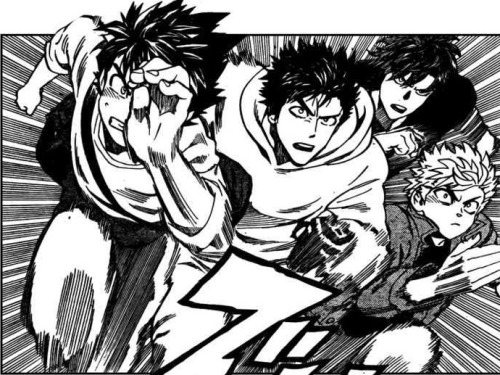
Villains Are People Too
None of which is to suggest that there are not some deeply unpleasant players on some of the Devil-Bats’ rival teams. Agon Kongo of the Shinryuuji Nagas is a one-man Opposing Sports Team, whose borderline sociopathy manages to make the rest of his team—who are about as happy with his behaviour as the reader or the Devil-Bats—look guilty by association, and the expression on his face when he is finally beaten is worth the price of the manga. The Hakushuu Dinosaurs are even worse, with ruthless team captain Reiji “Marco” Maruko advocating excessive force at every turn, and using berserk centre Rikiya Gao and unstable cornerback Hiromi Kisiragi to injure, and even cripple, opposing quarterbacks, receivers, and linemen. Even these characters though, as detestable as they may be, are developed beyond being merely hateful. Agon’s personality, for instance, is stated outright to be the result of years special treatment from coaches and authority figures, who are willing to forgive anything he does so long as he keeps winning games for them. His loss to Deimon actually knocks some of the arrogance out of Agon, and when he later finds himself playing on the Japanese national team alongside Sena and his one-time friend Hiruma, his actual enjoyment of the game—and the realisation that something he cannot quite identify is missing from his life—forces Agon to re-evaluate his actions. It is a bit of character development that many series would never have given to a character that unlikable, yet both Agon and Eyeshield 21 are better off for it having happened.
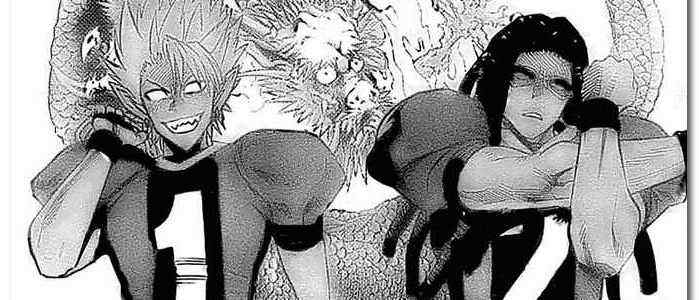
The Hakushuu Dinosaurs are given a similar amount of exploration, and despite their brutality, wind up being surprisingly sympathetic. Gao, while arguably insane, is a fair player and graceful loser who congratulates Deimon centre Ryokan Kurita on besting him and wishes him luck in the finals. Kisiragi is revealed as a bullying victim, harassed for his effeminate mannerisms, who first joined the football team to make the harassment stop and ended up as a means to an end for Marco. As for Marco himself, the mastermind behind Hakushuu’s horrific playing style? He is perhaps the most relatable of all, aiming to grind his way through the competition so that he might win the love of team manager—and upper class woman—Maruko “Maria” Himuro, even as the way his obsession twists his personality drives her farther out of his reach. Hiruma, when questioned about it by Marco, admits point blank that in Marco’s position he would have played exactly the same way, an admission that he makes good on by sending Kurita to break Marco the same way that Gao tried to break Hiruma. Ultimately, it might be said that there are no villains in Eyeshield 21, just athletes with personality issues.
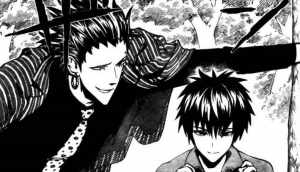
That every player on the field is a fellow athlete, worthy of respect and possessed of the same hopes and dreams as his opponents is at the core of every sporting event. Somehow, many fictional representations of the sports in question have managed to forget or obscure this basic fact. Eyeshield 21 does not join them in that. The fundamental decency of most opposing teams—and the fundamental humanity of even the most unlikeable—is placed front and centre and never taken out of the spotlight. The series develops Deimon’s enemies into fully realised, fully sympathetic characters, and then invites the reader to pull for the Devil-Bats anyway, since they are the protagonists, and it is, no matter what Hiruma says, not a matter of life and death. It works. Even more importantly, it reminds us all that fair play, good sportsmanship, and treating one’s adversaries as people can go a long way. Partway through the series, a journalist asks Hiruma why he plays football. In a rare, and apparently genuine moment, he answers “because it’s fun.” The epilogue shows that he and Sena have ended up at separate universities, and that each is vowing to crush the other’s team. Yet there is no bitterness or rancour in it, just the love of, and expectation for, a good game. They are, after all, former teammates. They are still fellow athletes, and when they promise to face off at the upcoming Rice Bowl and beat one another silly, they speak not as enemies, but as friendly rivals, anticipating a good challenge.
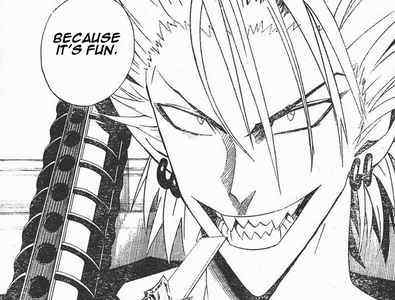
What do you think? Leave a comment.
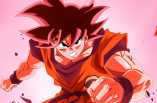
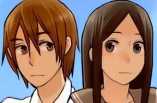
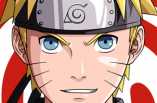
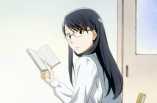
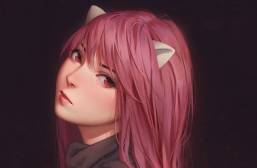
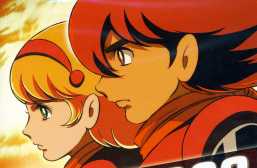
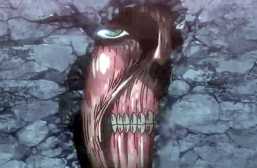
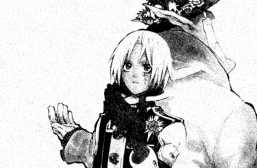
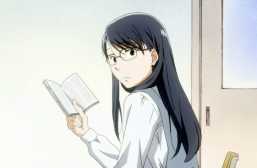
Eyeshield 21 is an excellent sports manga. The first volume exceeded every expectation I had for the series, quickly making it one of my highest priorities in manga.
This manga was simply amazing. my only complaint, the last arc. i felt it should have ended with the Christmas bowl.
This is definitely one of my favorite shounen mangas. Only two manga have made me so damn excited i do a happy dance. Slam Dunk, and this. These characters and this story will stick with me forever.
My only somewhat major complaint about the series is that some of the moves toward the end started to feel superpowered or otherwise overly unrealistic. It’s fine to exaggerate to some degree, but I still want the moves to be largely grounded in reality.
That’s part of the reason why I don’t watch the anime. I remember looking at a video on Youtube on one of the scenes against Naga, and I could’ve sworn that I was watching a DragonBall Z rerun.
But I know what you mean about unrealistic moves though. While the Devil Fourth Dimension might be based on a backstep, after watching so many NFL games I can see that backsteps are never that effective. The Devilbat ghost is more practical, or even a simple shimmy move, but I’d say that the fourth dimension was where it jumped the shark.
When i first started watching the anime, I knew nothing about football. Now i practically feel like an expert! I am sure not all things are utterly and perfectly accurate, but honestly, I don’t care. Going to read the manga next!
The first few chapters are good, but they get so much better not long after.
The dramaticised moves did get a little absurd at times, but I decided to just take them in stride. I mean, hell, it’s a manga, a little exaggeration wouldn’t kill.
I love this. The only other sports anime/manga I hold in such high regard is Hajime no Ippo.
They have an eyeshield 21 wii game, its better then madden. its practically Madden + DBZ = Eyeshield 21 game it is an amazing game.
I’m not a lover of sports, so the only sports anime I’ve watched is Haikyuu!! Surprisingly, I really liked it, so I ought to give Eyeshield 21 a try!
Great article!
Interesting. I know that this is about an anime but you have really brought up a deeply philosophical topic. Excellent work.
Looking forward to seeing more!
I love the silliness – I mean, some of those moves don’t really work irl, I have tried – and humor.
This is one of my favorite manga series, very underrated thanks for writing a piece about it.
Anyone who likes this should try prince of tennis, it`s really good!
I love Eyeshield 21! I have the first 9 volumes. I had to find them used though cause they are really hard to find! I can only find volumes 32, and 33 in the stores.
Just finished reading the final volume. While the series as a whole is unquestionably excellent, the final story arc seems a little sloppy and keeps it from being perfect in my opinion. That said, it was money well spent to see the characters grow in a way most modern shonen manga fail to achieve. I will gladly recommend this series to both football fans and manga fans alike.
The final arc can’t compare to the christmas bowl, but its still an effective way to up the level of the game. And I like how the match ended.
eyeshield 21 is great, whats your favorite team? GO JETS
It’s very long, but the story builds up so amazingly.
I have never even heard of this manga !!! Some of the people that play sports don’t even know what a book is yet alone a manga!!! Sports mangas are a weak attempt by book publishers to gain more money from a rarely used genre!!! Sports manga = evil.
I hope you’re joking. The sheer volume of sports fiction, be it books, film, or yes, manga and anime would suggest that people who play sports do, in fact, read, watch, and otherwise consume many different forms of media. My younger brother has played almost every sport imaginable, yet is an avid reader.
Obvious bait is obvious.
ive been meaning to check out this anime/manga for the longest time
Eyeshield21 may be the only american football manga however if u want to check ot a great football/soccer manga it has to be whistle! Its shonen jump and 24 volumes long!
Eyeshield 21, while ultimately holding on to a handful of tropes that empower the sports manga genre, does a solid job a subverting others. Primarily, we see the difference between the Ojo White Knights and the Devil Bats. In one match-up between the two teams, we have the White Knights before in their pre-game chants state they come to the field to beat their opponents, whereas the Devil Bats, as always, state they came to kill their foes and not just win the game. This attitude creates a rough and tumble mentality for the violate Devil Bats which makes them more lovable as a whole.
As one who only took an actual ‘following interest’ in American football after watching the series itself I feel it gives the genre of sport a refreshing exaggeration that is usually only possible by star athletes in reality. Like Albatross I agree with the way in which the team is narrated by their QB which adds to their charm – like quite frankly all the teams present in the series.
This I felt, was definitely one of the more successful adaptations of sport to Manga and subsequently Anime on the level of another ‘Hajime no Ippo’
Well I think while this is an excellent examination of Eyeshield this treatment of its rivals is not unique to it. It can be seen in History’s Strongest Disciple: Kenichi, One Piece and Naruto and countless others. It is a common trope in the genre of Shonen; which is all about the growth of an young individual. (kind of like a japanese Bildungsroman)
One of the best sports manga I have ever read. It’s too bad it’s not being printing anymore.
I am glad you did an article on “Eyeshield 21”, the relationships and respect the players have for one another is really what makes it so enjoyable. I felt the ending of the series was enjoyable and fairly realistic as well.
It was interesting how in-depth they made the relationships between teams and that a team was always there for a specific reason and played more than one part in the story line. Whats more it shows the respect that players had for one another which helped when expanding upon the Eyeshield Universe greatly.
I love the character dynamics of Eyeshield 21, but thought that their development was sometimes a little shallow. This is an interesting perspective that has me reconsidering 😁
Recently reread this series, and came across this article! Thanks for writing up and sharing your analysis and appreciation post, it’s like a drop of water in the dessert to an old fan 🥺🥺 Even though this article was written 6 years ago, it was totally accurate in how it summed up the heart of this series, and I hope you still love this series even in 2021 😁😁
This is one of the most well-written Sports Manga that I ever read. It’s full of diverse characters with unique personalities! Back then I always expected that the non-Deimon team characters would show up again in each upcoming chapter.